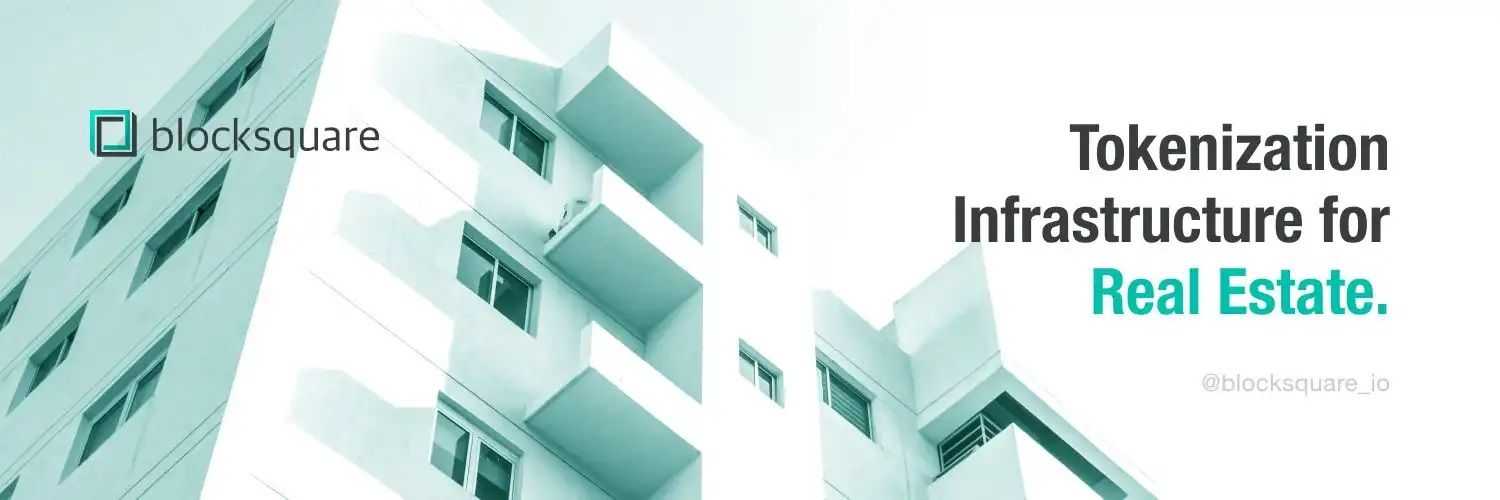Real Estate Tokenization at Scale: Exclusive Interview with Blocksquare and Galileo Protocol
As tokenization of real-world assets (RWAs) picks up global momentum, the convergence of regulation, blockchain, and traditional asset infrastructure is reshaping entire markets. Real estate, luxury goods, aviation—none are untouched.


Introduction
In this special AMA, our CEO Denis Petrovcic joined Pierre Beunardeau, founder of Galileo Protocol, for a candid discussion on real-world asset tokenization, European compliance, digital product passports, and what it takes to build infrastructure that actually works in a fast-evolving market.
Whether you're a real estate operator, Web3 builder, or regulator, this conversation delivers insight you can use.
AMA Published: May 6, 2025
Host: Pierre Beunardeau, CEO at Galileo Protocol
Guest: Denis Petrovcic, CEO at Blocksquare
🎥 Watch the full interview on X
Real Estate Tokenization: Infrastructure That Works
Pierre: Let’s start with the origin story. How did Blocksquare begin?
Denis: It started back in 2016 when I first discovered Ethereum. I was fascinated, and after some deep dives into blockchain tech, I pitched the idea over a beer to my childhood friend and co-founder Viktor, who ran a dev agency. We brought in Peter, a fintech lawyer, and the three of us started exploring how blockchain could apply to real estate. That became Blocksquare.
From Real Estate to Aviation: Pierre’s Journey into Tokenization
Denis: Pierre, you have a technical background—but Galileo started with a very human problem. Tell us about it.
Pierre: It started when my girlfriend bought a Louis Vuitton bag on eBay. It came with perfect documents—but everything was fake. That experience made me realize that blockchain could be used to create verifiable product authenticity through NFTs and digital product passports.
That concept became Galileo Protocol, which now helps brands across luxury, aviation, and health tech use tokenization to track, verify, and authenticate assets. We align everything with EU digital product passport regulations, especially the July 2024 directive.
We’re also working with aviation clients—tokenizing certificates, spare parts, and employee credentials. All backend. No Metamask required.
Pierre: What problem are you solving?
Denis: Real estate is the largest asset class in the world but one of the least liquid. We’re solving that by enabling compliant tokenization—turning real estate into digital assets that anyone can buy, trade, or earn income from.
The Marketplace Model: B2B2C Tokenization
Pierre: What does the Blocksquare product suite look like?
Denis: It’s a full-stack infrastructure for real estate tokenization:
-
Spring is our core protocol for issuing tokens tied to real-world property.
-
Tide is our white-label marketplace software so partners can run their own platforms.
-
Wave handles rent and yield distributions.
-
Oceanpoint is our DeFi layer, designed to solve liquidity fragmentation across tokenized assets.
Pierre: Who are your customers?
Denis: We operate a B2B2C model. Our core customers are real estate companies—typically established operators looking to offer fractional ownership to a broader, often global, investor base.
We provide the infrastructure—tokenization protocols, marketplace tools, compliance frameworks. They bring the assets, handle local legal requirements, and onboard investors.
Retail investors don’t interact with Blocksquare directly. Instead, they invest through our partners’ branded marketplaces—all powered by our tech stack.
Pierre: Walk us through the user journey.
Denis: A real estate company comes to us, and we guide them through legal structuring, token issuance, and compliance. They launch their own branded marketplace or plug into an existing one. For investors, it’s as simple as signing up, completing KYC, and purchasing fractionalized property shares—starting with just a few hundred dollars in stablecoins.
Legal Stack and MiCA Compliance
Denis: Regulation is the heaviest lift in tokenized real estate—every jurisdiction has its own requirements. That’s why we built a legal framework from day one that supports:
-
Single KYC, reusable across marketplaces
-
Tokenized economic rights, not direct property title
-
GDPR-compliant data handling
-
Full alignment with MiCA’s general crypto-asset category
When MiCA was finalized, we didn’t need to change a thing. That confirmed we’d built it right.
In April 2025, we were accepted into the EU Regulatory Sandbox, giving us direct access to policymakers as we continue scaling across Europe.
Pierre: How do you manage the technical challenges?
Denis: Regulation impacts dev cycles. But we’ve built modular systems that adapt without full rebuilds. For example, our smart contracts are audited, and we’re now open-sourcing our legal framework to help standardize the space.
Pierre: What makes Blocksquare stand out?
Denis: We’ve been building since 2018, not pivoting into hype. We’ve helped launch 15+ marketplaces across 28 countries, and our infrastructure is being used right now—not in theory. Our decentralized model empowers partners while maintaining compliance.
Oceanpoint: Making Real Estate Liquid
Pierre: What role does Oceanpoint play?
Denis: Oceanpoint is our liquidity aggregator built specifically for tokenized real estate. Traditional Uniswap-style liquidity pools don’t work here—real estate tokens are small, fragmented, and non-fungible. You can’t just pair them with USDC and expect deep liquidity.
Oceanpoint solves this by aggregating value across multiple tokenized properties, acting as a middleware layer between individual real estate tokens and the broader DeFi ecosystem. This structure enables investors to enter or exit positions, even when individual asset markets are thin.
We’re about to release Oceanpoint V2, with a fully redesigned front end and upgraded tokenomics to drive deeper engagement and utility.
Pierre: What are your biggest lessons from the past year?
Denis: The market's been tough. Institutional adoption hasn’t hit yet—but retail and entrepreneurial interest is growing. Every week we get new marketplace partners. What matters most: infrastructure that scales and adapts.
Roadmap and Open Source Commitment
Pierre: What else is coming for Blocksquare in 2025?
Denis:
✅ New legal entity in Luxembourg for faster EU rollout
✅ Accepted into EU regulatory sandbox
✅ POINT token smart contracts (Phase 1 & 2) ready and under internal review
✅ Admin panel overhaul in progress
✅ Open-sourcing our legal framework for use across the RWA industry
We’re holding off on a Blocksquare.io website redesign until mid-year—because the current site still drives quality leads.
Final Thoughts: Collaboration Over Competition
Denis: We’re in a market-education phase. Builders in the RWA space—whether in real estate, luxury, or aviation—need to collaborate to raise the baseline understanding. That’s how we earn trust and drive adoption.
The infrastructure is ready. The regulation is catching up. Now it’s about partnerships.
